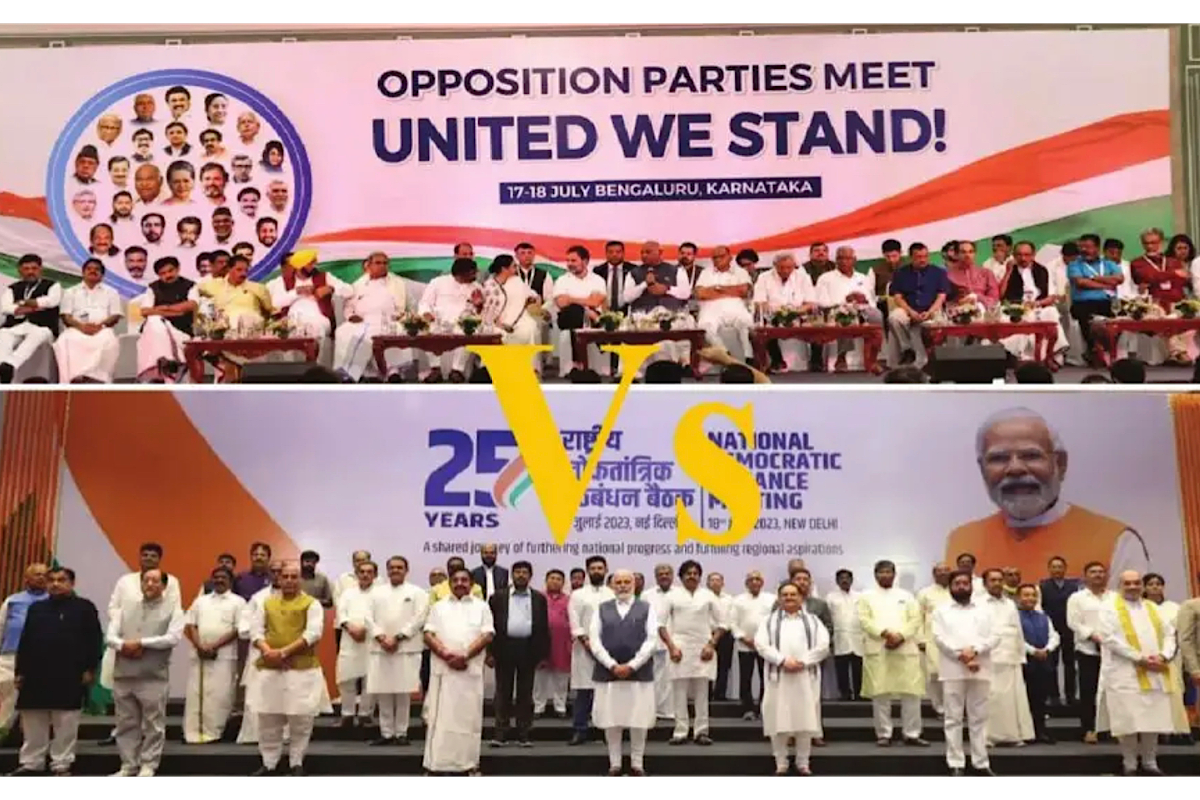Celebrated author of Einstein’s German World, Fritz Stern himself an exile from Hitler and the Nazis, in reflecting on the painful, tormented, hate-andviolence-filled history of his times, remarked: “No country, no society, is shielded from the evils that the passivity of decent citizens can bring about.
That is a German lesson of the twentieth century ~ for all of us.” Many would find a resonance of these thoughts in contemporary India as right minded citizens continue to remain mute spectators to the sordid socio political developments in contemporary India. As the world’s largest functional democracy is once again gearing up to hold the general election, a mammoth electoral exercise to form the 18th Lok Sabha, political pundits, television anchors, netizens and sundry other self-styled experts are engaged in heated, sometimes very shrill and impolite debates about the prospects of the two rival alliances vying for power, the ruling, but recently revamped NDA and the reincarnated I.N.D.I.A. .
Advertisement
The meeting of leaders of 15 Opposition parties, in Patna in Bihar on June 23, signaled a new urgency among them to coordinate their campaigns against the Bharatiya Janata Party (BJP) in the run-up to the 2024 general election. Against the backdrop of allegations that the BJP is misusing state power to corner the Opposition, the leaders explained the importance of the gathering; for instance, Tamil Nadu Chief Minister M K Stalin termed it a “war cry of a united opposition” for the “rebirth of a secular democratic India”. In reality, the deliberations were exploratory, and the event was more for optics than devising any common strategy.
The recent victory of the Congress against the BJP in the Karnataka Assembly somehow dealt a blow to the prevailing notion that the BJP juggernaut was unstoppable. However, the fact that parties such as the Samajwadi Party of Uttar Pradesh and the Trinamool Congress of West Bengal want the Congress to vacate the field or play second fiddle for the sake of a common candidate against the BJP in every constituency was clear indication of lack of cohesion among the members of opposition.
However, for the opposition parties, things progressed quite a bit in the meeting held between 18th and 20th July at Bengaluru which was witness to rechristening of UPA (United Progressive Alliance) as I.N. D. I. A. (Indian National Developmental Inclusive Alliance).
While people of India have often been disgusted by the internal squabbles of the opposition alliance, one must give credit to the fact that it is indeed a smart acronym, incorporating within it the idea of India as an inclusive, broad and egalitarian socio political order committed to the progress of all Indians irrespective of their religion, class, caste, creed and gender, the lofty ideals upheld by the founders of our republic, thereby posing a counter narrative to the Hindu nationalist, majoritarian, patriarchal agenda of the ruling dispensation. If politics was all about the right rhetoric, of producing allencompassing, catchy slogans, one might have given good marks to the opposition alliance, now bringing within its fold 26 regional parties for making a good start.
But then, electoral politics is many things more than just a war of narratives, it is about getting right the seat sharing arithmetic, the nurturing of the right chemistry among prominent regional satraps so as to convey the message to the citizens of the country that they can work as a team, about developing a credible common minimum programme which will be the guiding blueprint of this alliance, about a professional, mature approach towards delivering what they promise. On all these accounts, the alliance needs to cross many hurdles, thrash out many differences.
After all, ideas don’t move mountains, action does. Opposition parties who are often at loggerheads with each other in some states need to tone down their mutual bickering and show tact and maturity to convince electors that politics is the art of the possible and despite being contenders at regional level, they are committed to work together at the national level so as to produce a credible alternative. Unfortunately, recent Panchayat election in West Bengal is a spoiler for such attempts as the electoral battle degenerated into murders and mayhem. The only way out of this morass is better understanding among alliance partners.
Presence of many convicted criminals in the opposition alliance across political parties is enough to dampen the spirit of the significant section of our electorate who want a better alternative. While there is no denying the fact that our investigating agencies are specifically targeting opposition party members, the stupendous nature of the money-for-job scandal in West Bengal and liquor scam of the Delhi government are not lost on the voters.
Don’t we deserve better options? Can’t these parties purge those responsible for these scams if they really want to present the picture of a better and brighter India? Instead of focusing only on ‘Modi Hatao’, which BJP’s propaganda machinery is turning around as a personal attack on one of the world’s popular leaders, can’t they devote time and energy in drafting a proper economic plan which will address the issues of rising unemployment and price rise; the instability of the gig economy and rampant, reckless construction activities in fragile ecosystem of the Himalayas, whose ill effects are corroborated by recent devastating floods?
Don’t they realize that assembling an alternative narrative which focuses more on India’s spirituality, and not just bigoted religious practices, which highlight our diversity and syncretic culture as the bedrock of our soft power, a narrative which drives home the point that the spectacular achievement of Chandrayan mission needs to be bolstered through spread of scientific and logical temperament, still a far cry in India; that the Nari Sakti Vandan Adhiniyam (Women’s Reservation Bill in Indian Parliament), whose implementation is still ten years away, despite all the hype and hoopla, can’t hide the fact there are very few women in decisionmaking positions in most political parties, they often face highly toxic misogynistic treatments from their male counterparts, and data from the International Labour Organisation (ILO) states that the employability gender gap in India is 50.9 per cent, with only 19.2 per cent of women in the labour force, even behind countries like Saudi Arabia?
Why is there such lack of vision and a well-crafted mission, instead of just the drive to capture power? As Plato commented thousands of years ago, politics is an activity of highest order, directed towards common good and must be the domain of the philosopher-kings, those who combine wisdom and sagacity with commitment to truth and selfless service to public life. In different fields of life, India does have such talented, dedicated men and women. Will the opposition try to bring them in? They must try, in the interest of safeguarding the world’s largest functional democracy. They owe it to posterity
(The writer is Associate Professor, Department of Political Science, Women’s Christian College, Kolkata)










